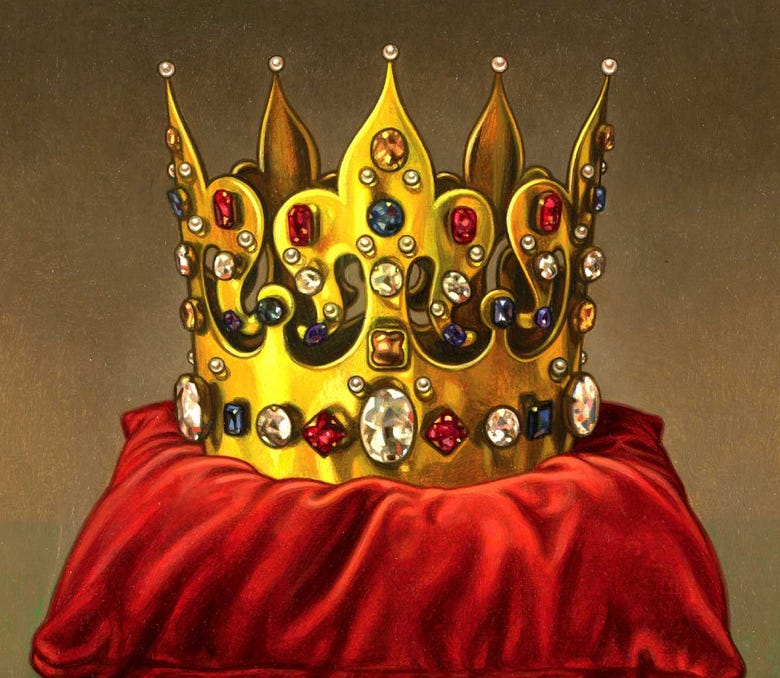Rethinking power
What makes a person powerful?
When we talk about “power” we tend to imply people in “positions of power” — bosses, landlords, presidents, CEOs, and police officers are commonly seen as such. Broadly and thanks in large part to feminist and leftist ideology, we also tend (in the West, in any case) to talk about “systems of power” (sometimes referred to as “systems of oppression,” giving away the actual analysis being presented), understood as things like capitalism, colonialism, patriarchy, white supremacy, etc. These systems, it is said, exist to prop up certain groups or “classes” of people — men, the wealthy, white people, etc. — ensuring those outside these groups remain marginalized or subordinate: without power. This view divides the world up into the vulnerable, disempowered, marginalized, and oppressed vs the powerful, privileged, oppressors. Under this view, the women, the poor, the brown, and, in more modern times, a wide variety of other identities attached to people with mental health issues, junk food addictions, or bad personalities are positioned as an inherent underclass.
I understand what is meant by this worldview, and its not entirely off. We are not all equal. Men are literally more physically powerful than women. A boss does have the power to determine what you do and do not do at work. In various places around the world and times throughout history, certain races or ethnicities were or still are treated as second class citizens. The wealthy are afforded privileges the working class are not. The haves do tend to live very separate lives than the have nots. Class mobility is a fantasy for most. There really is an elite class of of people in this world who make decisions the rest of us have little say in (or even much awareness such decisions are being made at all).
Yes, we live in a democracy, but we hardly have much genuine choice in determining who is in charge, and even what elected officials do with their positions once in. Bills are passed without any input from citizens, “vaccines” are mandated because corporations and their political lackeys see dollar signs, and media reports on their funders with the critical eye of a dog reporting on its master.
Nonetheless, I’ve come to think of “power” differently.
This is mainly because of my own personal experience of “power,” and what I’ve learned about feeling “powerful.”
There is a kind of power one can have over others that functions more as an abusive relationship than anything else, but then there is power over one’s life and day-to-day sense of happiness, wellbeing, and autonomy. This is, in my opinion, a much more satisfying and important form of power, rooted in something from within, something genuine and permanent, rather than something external, superficial, fake, or imposed.
Empowerment doesn’t come from being born a man or born rich or born a cis-hetero thin-privileged white. It comes from confidence in self, autonomy, and the sense of peace that comes with that — knowing who you are, what you want, what you don’t want, and being able to say so. It comes from feeling comfortable with and able to set boundaries, determining who you want to spend your energy on or with, what you do and don’t want to bother with, what kinds of behaviour you decline to engage. It comes from respecting yourself and choosing a life that feels dignified to you. It comes from knowing how to take care of yourself, but also knowing you have people around you you can ask for help (or who will offer help) when needed. It doesn’t mean telling yourself you need no one. It does mean, I think, understanding how important and necessary relationships to others are, while also knowing how to trust and depend on yourself.
I don’t think I ever really knew what “community” meant until I moved to a town where we all needed to kind of depend on one another, and where everything wasn’t easy and instant. I may still not fully understand what “community” is (there are a number of terms and ideas people use constantly, without ever really explaining what they mean, though we use said terms under the assumption everyone “gets it.” “Community” is one of those terms, I think, that people really like because it makes them sound like good, caring, grounded, evolved citizens, but in reality means little to a lot of people — urbans in particular), but to me it’s about being there for one another, knowing you will need others to be there for you — a sense of interdependence that is lost in big cities where there are simply too many people for the human brain to contend with, and where we aren’t confronted with the kind of instant karma small town people are faced with.




